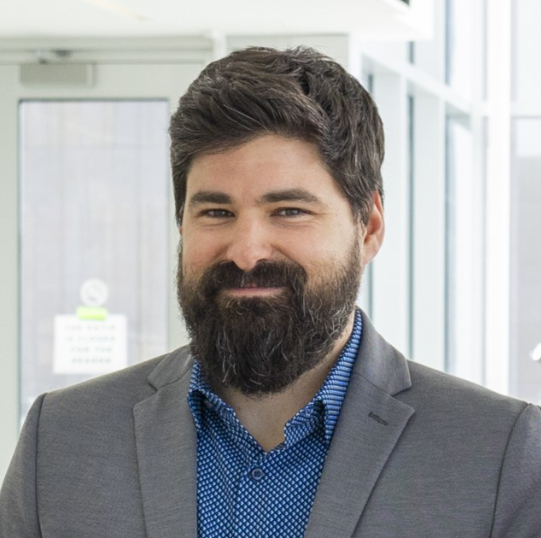What happens when a geographer turns their research lens inward—toward their home and their community? For one UW–Madison alum, a journey that began in Cameroon ultimately led to farmers markets in the Midwest and, later, to leading a nonprofit center in Madison. We caught up with Dr. Andy Davey (MS’11, PhD’19), a recent alumni of the Geography Department, to learn how a pursuit of geographic knowledge can inspire lasting community change.
Building a Local Focus

From 2009 to 2019, Dr. Andy Davey was a graduate student in the people-environment group on a journey to better understand place, power, and meaning. Initially drawn to studying food and agriculture in the Global South, particularly after spending time in Cameroon, he quickly realized something that reshaped his academic path. The depth of local knowledge held by his Cameroonian collaborator made clear how long it would take to contribute meaningfully in a place where he was an outsider. At the same time, he recognized a growing pull toward the Midwest—his own community—and began to reorient his research.
With the support of his advisor Matt Turner, he shifted his focus to the politics of local food systems in the U.S. This led to a project interviewing self-identified liberals and conservatives at farmers markets to explore how people across the political spectrum share environmental values and frustrations with dominant food systems. One example was a farmer in northern Minnesota who began farming organically after losing family members to cancer which she believed was caused by years of pesticide use. This experience echoed environmental justice narratives, despite her conservative politics. Stories like this formed the basis for his published article in Agriculture and Human Values titled “Conservative’ ideology and the politics of local food”. This project deepened Dr. Davey’s interest in political ideology, community organizing, and the possibility of broad coalitions for systemic change.
That curiosity carried into his dissertation, guided by advisor Bill Cronon. His work “Teaching Paradoxes: A History of Environmental Studies as Moral Education and Economic Enterprise”, examined how environmental commitments took shape at institutions; from savvy guidance counselors who understood the importance of outdoor recreation to rural economies, ambitious faculty looking to secure federal research funding, and institutional leaders wrestling with the tensions between their aspirational missions and financial realities.
Using a Geographer’s Skills in the Community
If you ask Dr. Davey what skills his degree in geography gave him, he would say that it made him an effective writer, qualitative researcher, and critical thinker. He would tell you Geography offers the possibility to explore the infinite complexity of places and making sense of the dynamic whir of humans, values, identities, creatures, air, water, earth, fire, and power, flowing in and through a place. This is why he finds value in his work, and why he encourages current students to build a network that brings joy into critically analyzing the world. For Dr. Davey, his network of fellow graduate students including Racheal Booth-Hentschel, Adam Mandelman, Rebecca Summer, Garrett Nelson, Eric Nost, Charlie Carlin, and others inspired his deep passion for geography.
Today, Dr. Davey continues to apply his geographic training in service of community change. As Director of the new Goodman Nonprofit Center in Madison, he supports nonprofit leaders working toward a more equitable and thriving community. Drawing on his skillset, he remains grounded in the belief that understanding the local community is essential to making meaningful change in advocacy and public policy. We’re grateful for Dr. Davey’s contributions to the department and the discipline as a whole, and we’re excited to watch him flourish in his career.



